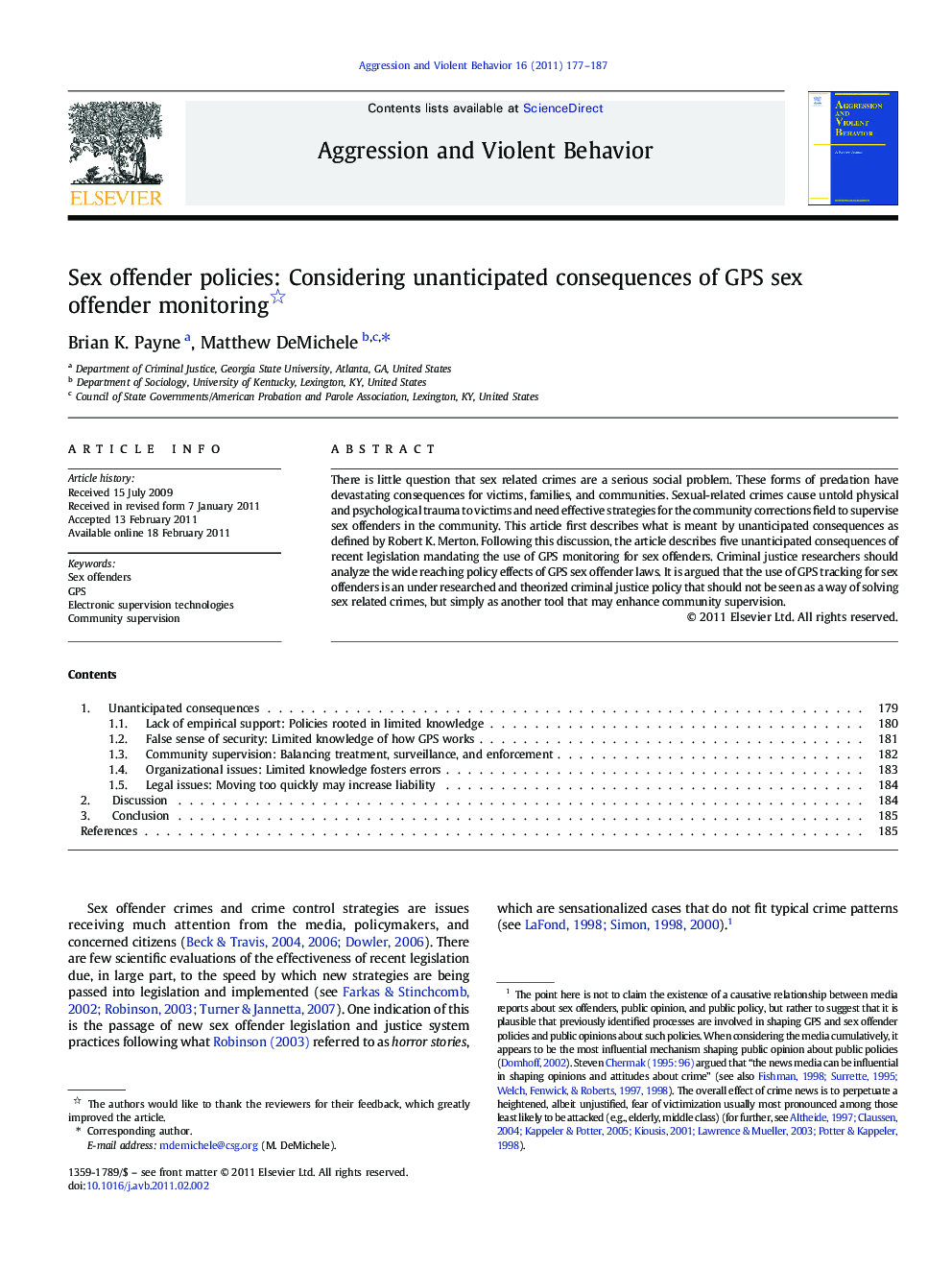| Article ID | Journal | Published Year | Pages | File Type |
|---|---|---|---|---|
| 94706 | Aggression and Violent Behavior | 2011 | 11 Pages |
There is little question that sex related crimes are a serious social problem. These forms of predation have devastating consequences for victims, families, and communities. Sexual-related crimes cause untold physical and psychological trauma to victims and need effective strategies for the community corrections field to supervise sex offenders in the community. This article first describes what is meant by unanticipated consequences as defined by Robert K. Merton. Following this discussion, the article describes five unanticipated consequences of recent legislation mandating the use of GPS monitoring for sex offenders. Criminal justice researchers should analyze the wide reaching policy effects of GPS sex offender laws. It is argued that the use of GPS tracking for sex offenders is an under researched and theorized criminal justice policy that should not be seen as a way of solving sex related crimes, but simply as another tool that may enhance community supervision.
Research Highlights► GPS policies for sex offenders have been developed despite a lack of empirical support. ► The limited amount of knowledge policy makers have about GPS may place citizens at risk for victimization. ► The development of GPS policies at such a rapid pace may create legal liabilities for community corrections officials. ► The limited amount of knowledge about GPS policies increases the likelihood of errors in using GPS tools.
